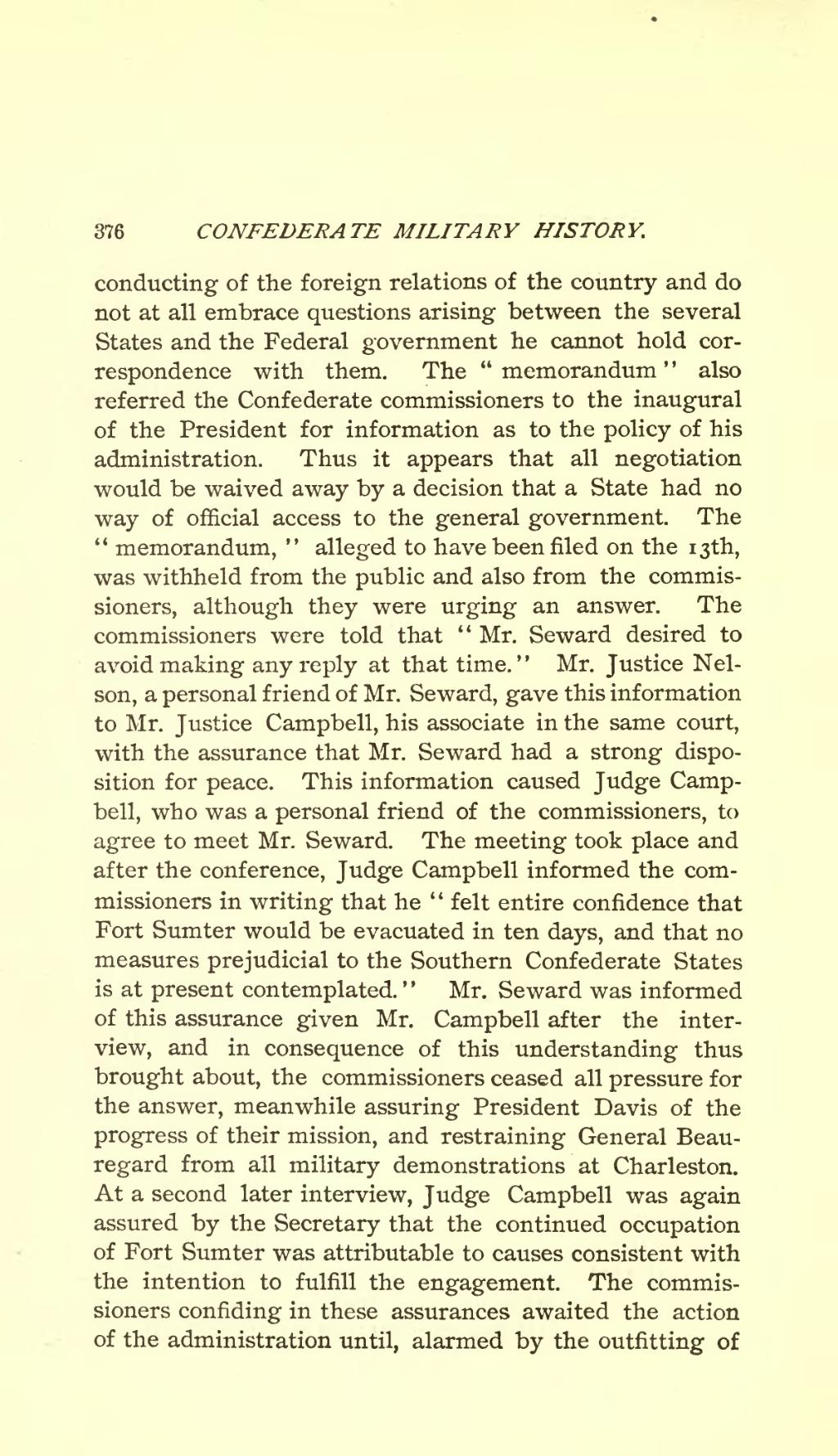conducting of the foreign relations of the country and do not at all embrace questions arising between the several States and the Federal government he cannot hold correspondence with them. The "memorandum" also referred the Confederate commissioners to the inaugural of the President for information as to the policy of his administration. Thus it appears that all negotiation would be waived away by a decision that a State had no way of official access to the general government. The "memorandum," alleged to have been filed on the 13th, was withheld from the public and also from the commissioners, although they were urging an answer. The commissioners were told that " Mr. Seward desired to avoid making any reply at that time. Mr. Justice Nelson, a personal friend of Mr. Seward, gave this information to Mr. Justice Campbell, his associate in the same court, with the assurance that Mr. Seward had a strong disposition for peace. This information caused Judge Campbell, who was a personal friend of the commissioners, to agree to meet Mr. Seward. The meeting took place and after the conference, Judge Campbell informed the commissioners in writing that he ** felt entire confidence that Fort Sumter would be evacuated in ten days, and that no measures prejudicial to the Southern Confederate States is at present contemplated. Mr. Seward was informed of this assurance given Mr. Campbell after the interview, and in consequence of this understanding thus brought about, the commissioners ceased all pressure for the answer, meanwhile assuring President Davis of the progress of their mission, and restraining General Beauregard from all military demonstrations at Charleston. At a second later interview, Judge Campbell was again assured by the Secretary that the continued occupation of Fort Sumter was attributable to causes consistent with the intention to fulfill the engagement. The commissioners confiding in these assurances awaited the action of the administration until, alarmed by the outfitting of
